This article needs additional citations for verification .(April 2019) |
| Years in science fiction |
|---|
| History of science fiction Timeline of science fiction |
The year 2013 was marked in science fiction by the following events.
This article needs additional citations for verification .(April 2019) |
| Years in science fiction |
|---|
| History of science fiction Timeline of science fiction |
The year 2013 was marked in science fiction by the following events.

Best science fiction film: The Avengers

Alfonso Tiberio Cuarón Orozco is a Mexican filmmaker. His accolades include five Academy Awards, seven BAFTA Awards, and three Golden Globe Awards.

Cyril M. Kornbluth was an American science fiction author and a member of the Futurians. He used a variety of pen-names, including Cecil Corwin, S. D. Gottesman, Edward J. Bellin, Kenneth Falconer, Walter C. Davies, Simon Eisner, Jordan Park, Arthur Cooke, Paul Dennis Lavond, and Scott Mariner.
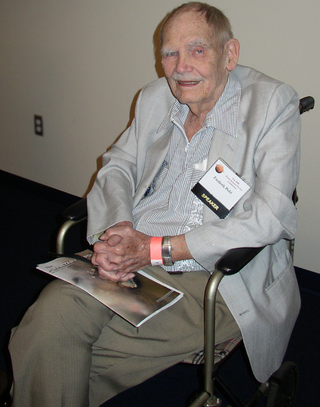
Frederik George Pohl Jr. was an American science-fiction writer, editor, and fan, with a career spanning nearly 75 years—from his first published work, the 1937 poem "Elegy to a Dead Satellite: Luna", to the 2011 novel All the Lives He Led.
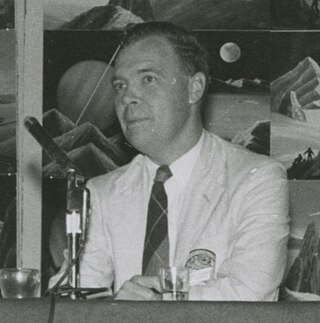
Harry Clement Stubbs, better known by the pen name Hal Clement, was an American science fiction writer and a leader of the hard science fiction subgenre. He also painted astronomically oriented artworks under the name George Richard.
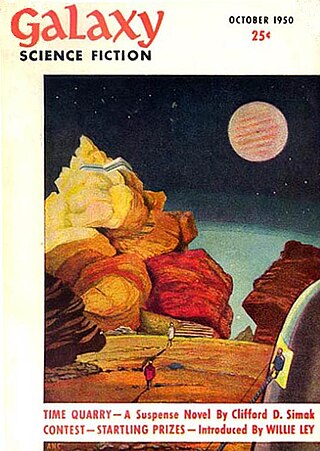
Galaxy Science Fiction was an American digest-size science fiction magazine, published in Boston from 1950 to 1980. It was founded by a French-Italian company, World Editions, which was looking to break into the American market. World Editions hired as editor H. L. Gold, who rapidly made Galaxy the leading science fiction magazine of its time, focusing on stories about social issues rather than technology.
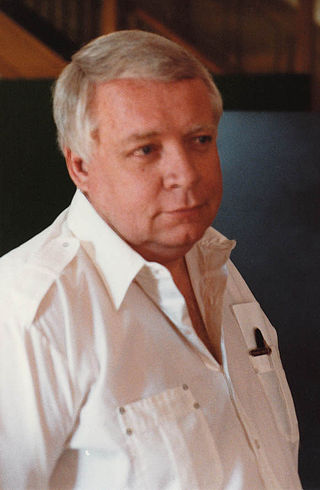
Algirdas Jonas "Algis" Budrys was a Lithuanian-American science fiction author, editor and critic. He was also known under the pen names Frank Mason, Alger Rome in collaboration with Jerome Bixby, John A. Sentry, William Scarff and Paul Janvier. In the 1990s he was the publisher and editor of the science fiction magazine Tomorrow Speculative Fiction.
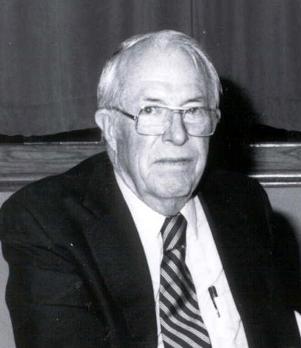
John Stewart Williamson, who wrote as Jack Williamson, was an American science fiction writer, one of several called the "Dean of Science Fiction". He is also credited with one of the first uses of the term genetic engineering. Early in his career he sometimes used the pseudonyms Will Stewart and Nils O. Sonderlund.

Black holes, objects whose gravity is so strong that nothing—including light—can escape them, have been depicted in fiction since at least the pulp era of science fiction, before the term black hole was coined. A common portrayal at the time was of black holes as hazards to spacefarers, a motif that has also recurred in later works. The concept of black holes became popular in science and fiction alike in the 1960s. Authors quickly seized upon the relativistic effect of gravitational time dilation, whereby time passes more slowly closer to a black hole due to its immense gravitational field. Black holes also became a popular means of space travel in science fiction, especially when the notion of wormholes emerged as a relatively plausible way to achieve faster-than-light travel. In this concept, a black hole is connected to its theoretical opposite, a so-called white hole, and as such acts as a gateway to another point in space which might be very distant from the point of entry. More exotically, the point of emergence is occasionally portrayed as another point in time—thus enabling time travel—or even an entirely different universe.
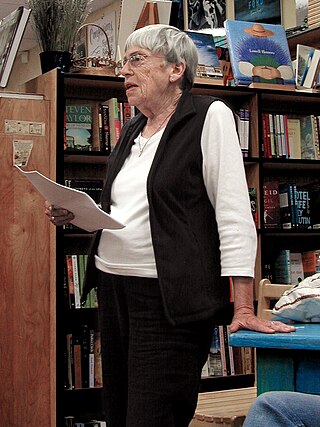
Soft science fiction, or soft SF, is a category of science fiction with two different definitions, in contrast to hard science fiction. It explores the "soft" sciences, as opposed to the "hard" sciences. It can also refer to science fiction which prioritizes human emotions over scientific accuracy or plausibility.

The 72nd World Science Fiction Convention (Worldcon), also known as Loncon 3, was held on 14–18 August 2014 at the ExCeL London in London, United Kingdom.
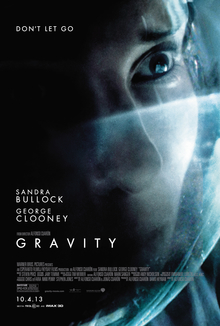
Gravity is a 2013 science fiction thriller film directed by Alfonso Cuarón, who also co-wrote, co-edited, and produced the film. It stars Sandra Bullock and George Clooney as American astronauts who attempt to return to Earth after the destruction of their Space Shuttle in orbit.
Astonishing Stories was an American pulp science fiction magazine, published by Popular Publications between 1940 and 1943. It was founded under Popular's "Fictioneers" imprint, which paid lower rates than Popular's other magazines. The magazine's first editor was Frederik Pohl, who also edited a companion publication, Super Science Stories. After nine issues Pohl was replaced by Alden H. Norton, who subsequently rehired Pohl as an assistant. The budget for Astonishing was very low, which made it difficult to acquire good fiction, but through his membership in the Futurians, a group of young science fiction fans and aspiring writers, Pohl was able to find material to fill the early issues. The magazine was successful, and Pohl was able to increase his pay rates slightly within a year. He managed to obtain stories by writers who subsequently became very well known, such as Isaac Asimov and Robert Heinlein. After Pohl entered the army in early 1943, wartime paper shortages led Popular to cease publication of Astonishing. The final issue was dated April of that year.
This article contains information about the literary events and publications of 2013.
The year 1919 was marked, in science fiction, by the following events.
The year 1926 was marked, in science fiction, by the following events.

The SFWA Grand Masters, Volume 3 is an anthology of science fiction short works edited by Frederik Pohl. It was first published in hardcover by Tor Books in June 2001, and in trade paperback by the same publisher in April 2002. It has been translated into Italian.
The year 1954 was marked, in science fiction, by the following events.
The year 1956 was marked, in science fiction, by the following events.